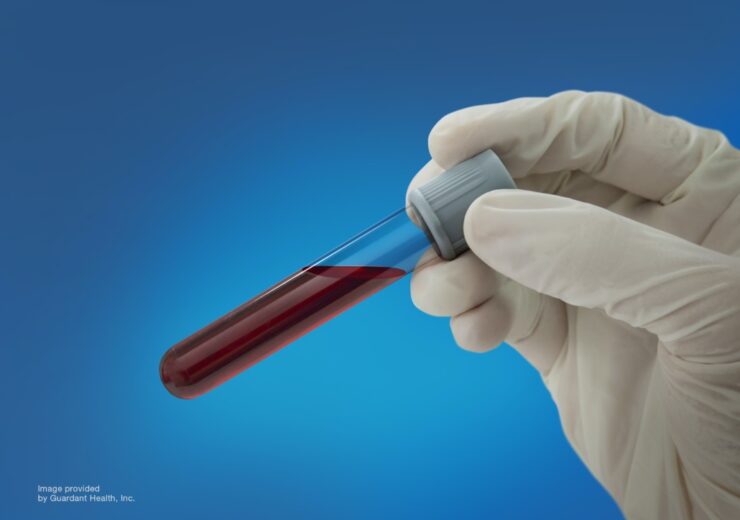The positive results from the ECLIPSE study are expected to help Guardant Health launch the first potential FDA-approved blood test for the screening of colorectal cancer

Guardant Health announced the results from the ECLIPSE registrational study of over 20,000 patients. (Credit: Guardant Health)
Guardant Health said that the ECLIPSE study, which evaluated the efficacy of the company’s blood test for detecting colorectal cancer (CRC) in average-risk adults, demonstrated 83% sensitivity.
The finding is part of the results announced by the US-based precision oncology company from the ECLIPSE (Evaluation of ctDNA LUNAR Assay In an Average Patient Screening Episode) registrational study of over 20,000 patients.
According to the study, the specificity of the test was found to be 90% in participants without advanced neoplasia and in those whose colonoscopy result was negative.
Guardant Health said that the assay also showed 13% sensitivity in detecting advanced adenomas.
Based on these results, the oncology firm is planning to complete its premarket approval submission for its blood test to the US Food and Drug Administration (FDA) in the first quarter of 2023.
The firm claims that the study results surpassed the performance criteria set forth by the Centers for Medicare & Medicaid Services (CMS) for reimbursement.
Guardant Health co-CEO AmirAli Talasaz said: “Over 49 million eligible people in the U.S. remain unscreened for colorectal cancer. We are confident that a high-sensitivity blood test can play a critical role in improving screening adherence rates by offering an accurate and convenient blood test to those reluctant to get screened.
“These results demonstrate, for the first time, that a blood test can indeed achieve high-sensitivity detection for colorectal cancer, a disease that was thought to be difficult to detect in blood.”
ECLIPSE, which is a prospective study assessed the performance of the investigational blood test in comparison to a screening colonoscopy in average-risk individuals between the ages of 45 and 84 from across the US.
Guardant Health said that the study evaluated two variations of a multimodal blood-based screening test, a cell-free DNA (cfDNA)-only test and a cfDNA test including protein biomarkers. The overall results were derived from the cfDNA-only test, which is said to have performed better than the cfDNA test with protein biomarkers.
The blood-based test has the ability to increase screening rates and contribute to lifesaving by offering convenient and accurate screening via a quick blood draw, the US-based precision oncology company claimed.
